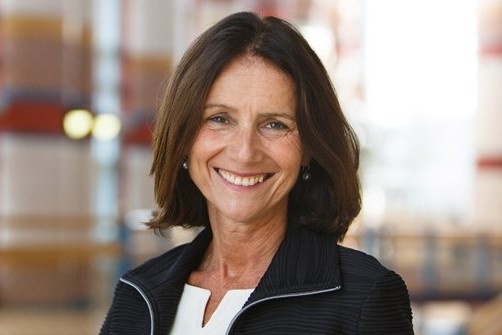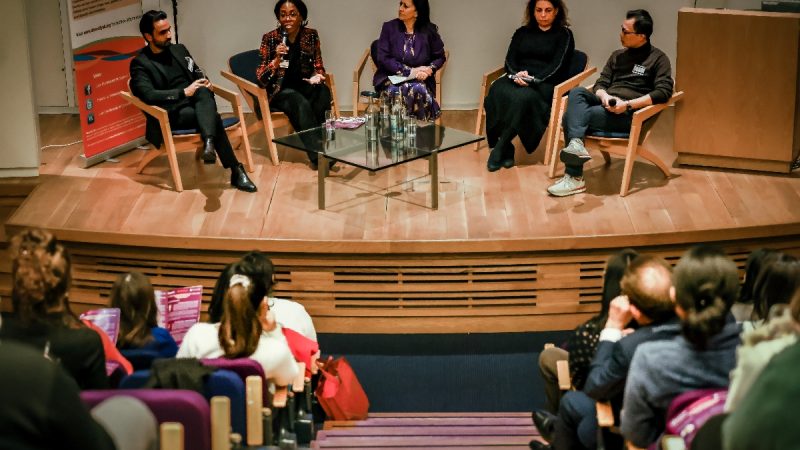CBI calls for new 25% target for female executives

In her first keynote speech on diversity, CBI Director-General Carolyn Fairbairn will underline the importance of unlocking female talent to UK economic prosperity and call on the successor body to the Davies Review to consider a new 25% voluntary, business-led target for female senior executives in major UK companies. She will call on the Review to look at the timeframe and milestones to achieve this.
Speaking at an event hosted by law firm Latham & Watkins in London tomorrow (Thursday 28 January), Carolyn will highlight that the number of FTSE 100 female executive directors still represents less than 10%, despite the significant progress made by the Davies Review.
She will emphasise the importance of looking “beyond boards” to executive roles and urge chief executives to do even more to help capable women progress from entry-level to senior management positions.
On progress so far, CBI Director-General Carolyn Fairbairn will say: “It’s important that we broaden the exam question and talk more widely about women as leaders. I believe that this, not women on boards per se, is the real issue.
“It’s fantastic that women are present in boardrooms in greater numbers. But let’s be clear. Non-executive directors and even chairmen attend between 4 and 10 board meetings a year. They approve strategy, are guardians of values, challenge decisions and help manage risk.
“These are important roles, but it is the job of executives to take daily decisions, shape and define strategy, and influence culture through the everyday examples that they set. They are the sleeves-rolled-up leaders in our society.
Number of female CEOs of FTSE 350 companies has barely moved
“Today, there are just nine more female executive directors on FTSE350 boards than in 2010 and the number of female chief executives has barely moved.
“We don’t have enough women running things and it is not getting better anything like fast enough.
“There’s no doubt in my mind that developing more women leaders will make a real difference to the success of the UK economy, our productivity and the UK’s future place in the world.
“Diverse voices – people of different genders, from different parts of the world, and of different lifestyles, ages, sexuality, religion, physical and mental health capabilities – enable better business decisions.”
On steps businesses are taking to promote the best female talent, Carolyn will say:
“Many chief executives agree but continue to grapple with what to do about it.
“Some companies are struggling to attract women into their companies out of school or university. Others have no trouble attracting women to join them but find they leave. More and more CEOs are telling me that their best women are choosing to step down just as they get into very senior positions and are being offered top jobs.
“As a result, too many of our firms are seeing an exodus of senior women. We have talked a lot about glass ceilings over the years, but in my view we now need to talk more about sticky floors. Why are women choosing to leave?
“Taking leadership roles in our society is risky, exposed, hard work. The personal toll can be high. You need friends, support systems, connections and a sense of belonging.
And this is where I think the UK business world is not changing fast enough. Too much of UK business is still geared up for men, in terms of its social habits, its small talk, its clubbiness.
“The availability of childcare, flexible working arrangements and support in caring for elderly parents are part of this.”
New target of 25% for female senior executives in major UK companies
Calling for voluntary targets to increase boardroom representation to be extended to the UK’s major firms, Carolyn will say:
“We have seen that voluntary targets work. Lord Davies’s Review did three things extraordinarily well. First, it set a big, bold and simple target that was measured against and reported on. Second, it fostered networks of people who set about solving the problem, sharing ideas and getting things done. Third, it kept reminding people why it mattered.
“The government has shown exceptional resolve and commitment in setting up the Davies Review; now is the time for the next phase – getting the number of women leaders up.
“Last October Minister for Women and Equalities Nicky Morgan MP announced that a new review, with a new independent chair, would focus on the executive pipeline. I’d like to suggest that they draw on the success of the Davies Review and establish a new voluntary target of 25% female senior executives in major UK companies. The timeframe would be up to the new review – as would the milestones marking progress along the way.
“25% is a deliberately ambitious target, but I think that’s appropriate.
“The CBI is ready to work with government and businesses across the country on this vital agenda. We can help spread best practice, highlight successes, keep making the case and raising the profile, working alongside our members, many of whom care deeply about this.
“Great leadership is going to be essential to the future success of the UK on the world stage. Where better to look than in the ranks of our own talent – wonderful women currently working in companies and organisations up and down the land.”




